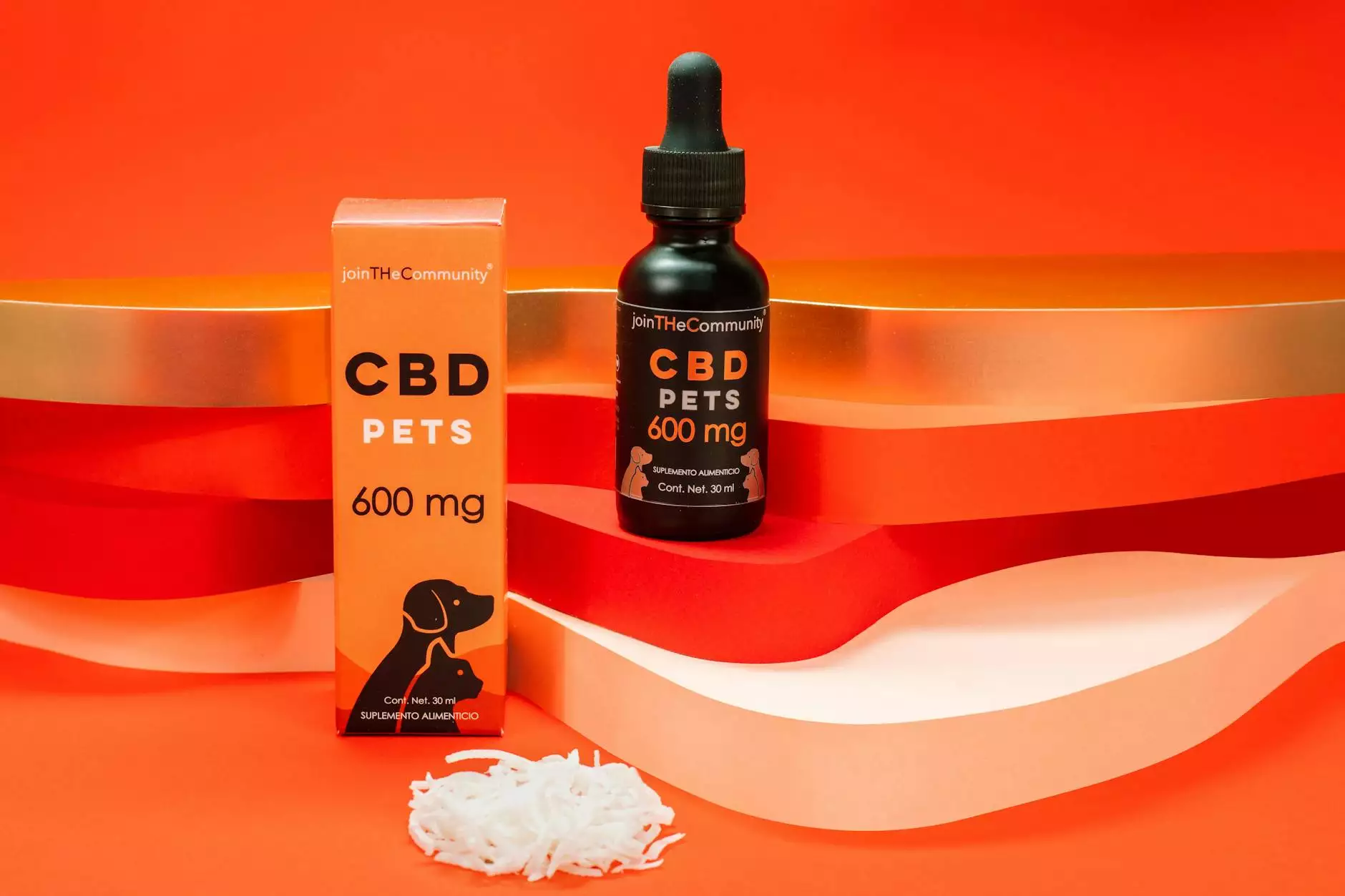Exploring the Benefits of Pet Meat for Your Furry Companions

In recent years, the pet food industry has witnessed a transformation, with pet meat emerging as a popular alternative to traditional pet food options. As pet owners become more discerning about their furry friends' diets, the demand for natural and wholesome food sources has skyrocketed. At dburnspettreats.com, we’re dedicated to providing informative resources about the latest trends in pet nutrition and wellness.
What is Pet Meat?
Pet meat refers to high-quality proteins sourced primarily from animals that are safe and nutritious for pets. This includes options like beef, chicken, lamb, and fish, which are specially prepared for pet consumption. Unlike processed commercial pet foods that often contain fillers, artificial preservatives, and by-products, pet meat offers a natural alternative that caters to the nutritional needs of pets.
Types of Pet Meat
When choosing pet meat, it's essential to understand the different types available on the market. Here’s a detailed list of common types:
- Beef - Rich in protein and essential amino acids.
- Chicken - A lean protein source that supports muscle growth.
- Lamb - Great for pets with food sensitivities.
- Fish - Packed with omega-3 fatty acids beneficial for skin and coat health.
- Turkey - Lean and easily digestible, ideal for pets on a diet.
The Nutritional Advantages of Pet Meat
Pet owners often overlook the nutritional benefits of incorporating pet meat into their animals' diets. This natural protein source is packed with nutrients essential for optimal pet health. Here are some notable benefits:
High Protein Content
Pets require protein for strong muscles, healthy skin, and overall vitality. Pet meat provides a rich supply of protein, kept free of fillers that dilute its nutritional value.
Essential Fatty Acids
Fish, in particular, is an excellent source of omega-3 and omega-6 fatty acids. These essential fats are vital for maintaining a shiny coat, promoting healthy skin, and supporting brain function.
Improved Digestion
Many pets struggle with digestive issues due to indigestible ingredients found in commercial pet food. Pet meat is typically easier for pets to digest, leading to better nutrient absorption and fewer gastrointestinal problems.
Choosing the Right Type of Pet Meat for Your Pet
When selecting pet meat, it's crucial to consider your pet’s dietary needs, preferences, and potential allergies. Here are some tips for making the best choice:
Assess Dietary Needs
Consult with your veterinarian to determine if your pet has any specific nutritional requirements or restrictions. For instance:
- *Dogs*: May thrive on beef or chicken, while older dogs might benefit from leaner options like turkey.
- *Cats*: Require taurine, found abundantly in fish and poultry.
Quality Matters
Not all pet meat products are created equal. Look for high-quality treats made from free-range or grass-fed animals. Always check for:
- Ingredient lists: Should only contain meat and natural preservatives.
- Sourcing information: Where the meat comes from and how it was processed.
- Certifications: Look for brands that follow safe processing guidelines.
Incorporating Pet Meat into Your Pet's Diet
Transitioning to a diet that includes pet meat can be smooth with the right approach. Here’s how to effectively incorporate it into your pet’s meals:
Gradual Introduction
Start slowly by mixing small portions of pet meat with your pet’s usual food. Increase the amount gradually while monitoring your pet's reaction to the change.
Monitor Health and Energy Levels
Keep track of any changes in your pet’s health, energy, and mood. A positive response is often reflected in improved vitality and coat condition.
Homemade Pet Meals
Consider preparing homemade pet meals using pet meat. It allows you to have full control over ingredients and ensures no harmful additives are included. Here’s a simple recipe:
Simple Homemade Chicken and Rice Recipe
- Ingredients:
- 1 cup of boiled chicken (chopped)
- 1/2 cup of cooked rice
- 1/4 cup of peas and carrots
- A dash of chicken broth (low sodium)
- Instructions:
- Combine the chicken, rice, and vegetables in a bowl.
- Add chicken broth to moisten the mixture.
- Serve at room temperature for your pet to enjoy!
Potential Risks and Considerations
While pet meat boasts numerous health benefits, it’s imperative to understand any potential risks:
Allergic Reactions
Some pets may experience allergies to certain proteins. Monitor your pet for any adverse reactions after introducing new meat options.
Handling and Storage
Proper handling and storage of pet meat are crucial to prevent contamination. Always follow these guidelines:
- Keep meat refrigerated or frozen until ready to use.
- Use separate utensils for pet food to avoid cross-contamination.
- Discard any uneaten portions after a meal.
The Environmental Impact of Choosing Pet Meat
As conscientious consumers, many pet owners consider the environmental impact of their choices. Here’s how opting for pet meat can lead to a healthier planet:
Sustainable Sourcing
Choosing pet meat from farms that prioritize sustainability can reduce your carbon footprint. Look for products sourced from local farms that practice ethical farming methods.
Reducing Processed Foods
By opting for whole, natural ingredients like pet meat, pet owners contribute to a reduction in the demand for highly processed pet food, which often comes with a larger environmental impact.
Conclusion: A Wholesome Choice for Your Pet
In conclusion, incorporating pet meat into your pet's diet can lead to countless benefits — from improved health to enhanced vitality. As the trend continues to grow, it's vital for pet owners to make informed choices about their pets' nutrition. With resources like dburnspettreats.com, you can find valuable information and premium pet meat treats that meet your pet's dietary needs, ensuring a happier and healthier life for your beloved companions.
Remember, a well-nourished pet is a happy pet, and choosing the right food is the first step toward providing a long and fulfilling life for your furry friends!









